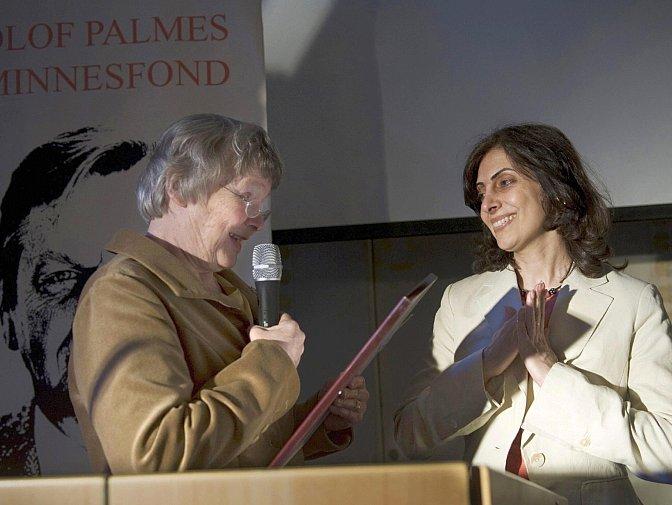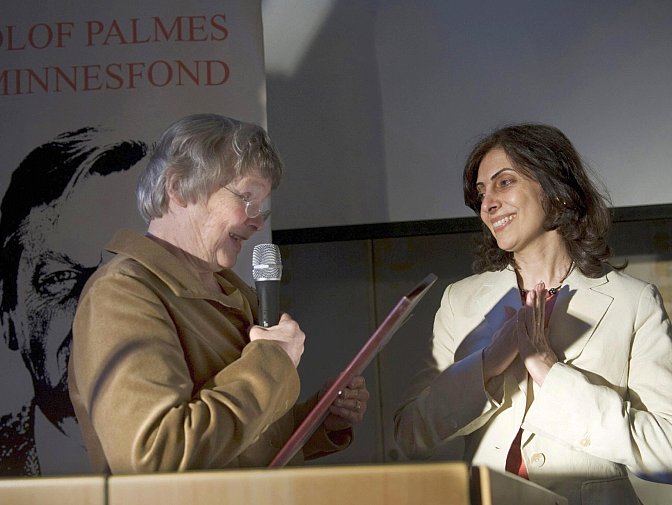STOCKHOLM, Sweden—The small Swedish town of Sigtuna recently voted to join a growing network of cities and towns across the world that offer persecuted writers or journalists a temporary home and peaceful place to practice their craft.
Sigtuna, a town of about 8,500 people a few miles north of Stockholm, became the sixth Swedish municipality to join the International Cities of Refuge Network, or ICORN—an association formed in response to the assault on freedom of expression that so many writers face.
As an official city of refuge, Sigtuna will provide a persecuted writer with food, lodging, and help for two years, giving him or her a chance to focus on writing, in a safe environment with good conditions for work and living.
Each of ICORN’s 40 cities takes care of one writer at a time. In 2011, ICORN handled 41 writers including 18 new placements. As of May 2012, the association reported at its annual general meeting, that 10 new applications had been received since January putting the waiting list at 50 writers. Out of those, ICORN seven had placements lined up and 11 were “temporarily safe.”
For writers who decide and succeed in leaving their home country, the transition to another part of the world, potentially totally unknown to them, can be a daunting and complicated process.
“They face many challenges and problems. We are working hard to make everything smooth for them, but unfortunately, there are so many writers who need protection, and we want more cities to join,” says Helge Lund, executive director of ICORN, based in Stavanger, Norway.
Although Lund says he is wary of the organization growing too quickly, there are currently many people working at creating more places of refuge for writers facing serious persecution simply for exercising the fundamental right to free speech.
Of the 40 cities on ICORN’s membership roster, most are European, but Miami and Mexico City are also members. Norway has the most member cities at a dozen, with Sweden next.
“What’s happening in Sweden is very positive. Many cities and many forces are committed to this. It’s a very good development,” said Lund.
Fredrik Elg, of the Swedish Arts Council, took the initiative to make Malmo, Sweden’s third largest city, located in the south, a city of refuge. Finding more cities of refuge in Sweden is one of the Arts Council’s tasks. Elg gave some examples of what the Arts Council can do, in addition to providing support and sharing experiences.
“We can provide economic support for related activities, such as translations, in order to help the writer quickly become part of Sweden’s literary circuit, and then arrange events, such as readings or debates,” he said.
The first writer Elg received in Malmo was Parvin Ardalan from Iran, the 2007 Olof Palme Prize laureate. At the time, Ardalan could not accept the prize, because she was arrested at the airport leaving Tehran en route to Stockholm. Her sister Shirin Ardalan accepted the prize for her.
Parvin Ardalan is an Iranian writer and journalist who founded a cultural center for women. She has analyzed and documented the situation of women in Iran and became editor for the center’s online publication, Zanestan—marking the start of a long, uphill struggle against censorship.
When Ardalan took the initiative to collect a million signatures demanding equal rights for women in Iran, it sparked a grass-roots movement, which led to demonstrations and a subsequent crackdown. Ardalan was sentenced to three years in prison for “threatening national security.” The verdict was appealed, and she has still not served the sentence.
ICORN’s offer of refuge took effect in 2010, and ended this past spring, but Ardalan was granted residency in Sweden. She still lives and writes in Malmo, where she acts as a voice not only for women, but also for the Iranian people.
Another writer who experienced getting on the wrong side of the ayatollahs in Iran is Salman Rushdie. His 1988 book “The Satanic Verses” led to Iran’s supreme leader at the time, Ayatollah Khomeini, declaring a fatwa against Rushdie for blaspheming Islam. Despite being a British citizen living in the U.K., Rushdie was forced underground.
It was Rushdie’s initiative in 1993 to established an International Parliament of Writers (IPW), which then gave birth to the idea of creating a network of places of refuge for persecuted writers. Two years later, they began recruiting cities. While IPW ceased to exist in 2004, the foundation for ICORN had been established. The organization was originally a loose network, but since 2010, it has been an independent international organization, owned by its member cities.
“It’s an amazing job, running ICORN, because there are so many positive and good forces out there in the cities, doing an amazing job. We see that the more the cities invest in this, the more they get in return,” Helge Lunde said.
The Epoch Times publishes in 35 countries and in 19 languages. Subscribe to our e-newsletter.




